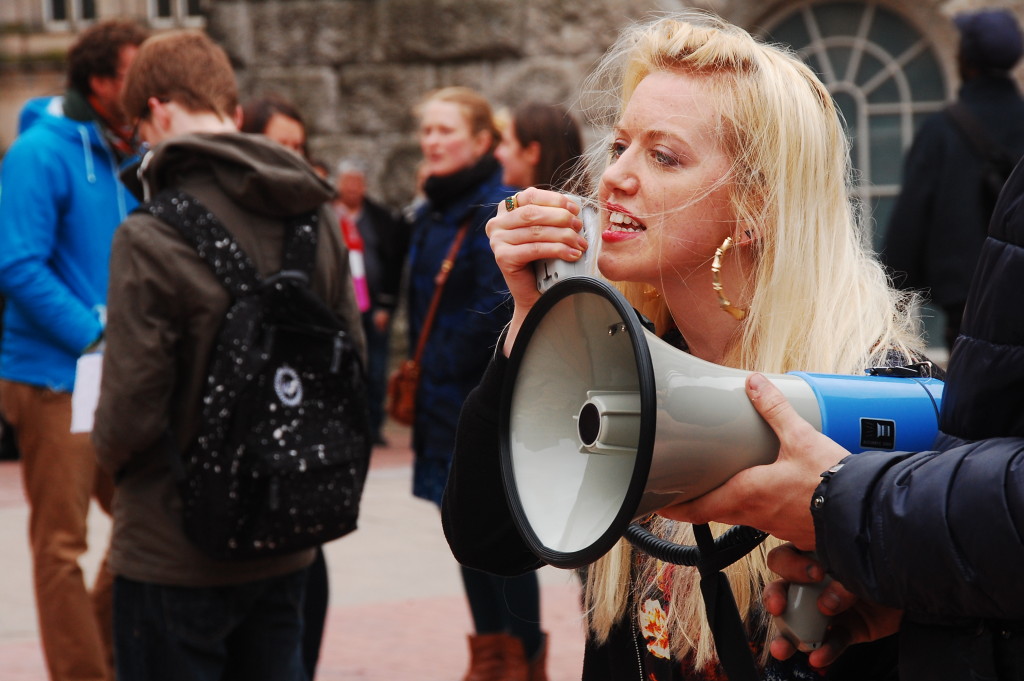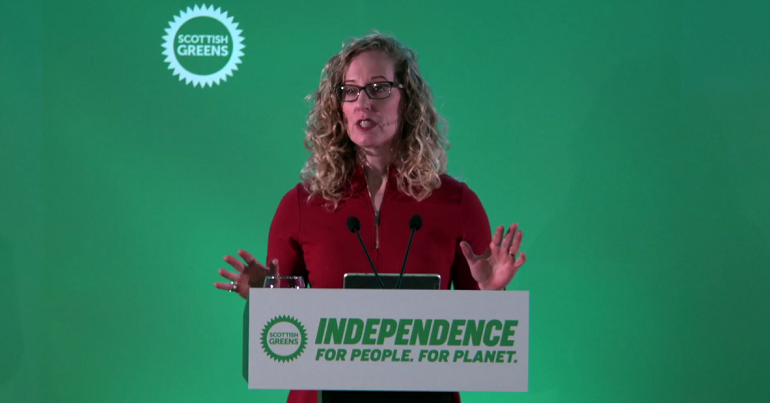‘NUS Welfare should be seen as one facet of a bigger fight for the welfare state’: interview with Shelly Asquith
William Pinkney-Baird interviews Shelly Asquith, standing for Vice President Welfare at NUS Conference this week, in the fifth of a series of interviews with some of the left-wing candidates for NUS leadership.

From 19 March, students at University of the Arts London (UAL) went into occupation following the announcement that over 650 places in their Foundation course—which provide a year-long education in the arts free for home students under 19—were to be cut. This occupation continued for about a month until the university took the occupying students to court to prevent them from protesting. One of the main organisers of this occupation was Shelly Asquith, students’ union president at UAL, who is now running for Vice President Welfare at this week’s NUS Conference. I recently talked to her about why she was standing and what her vision was for the role.
Following a brief tour over Skype of the UAL Occupation (this was before the occupiers were evicted by the uni), Shelly got started on why she was standing. Numerous personal reasons had led her to initially run to be a sabbatical officer, and opened her eyes to issues that the Welfare Campaign in NUS should be fighting on: when she first started at uni, she had to drop out after just a few weeks because her student loan didn’t come in on time, leading her to take a year out, sign on to benefits and get a job; and in her second year of uni, she and her mum were evicted from their house and had to take the Department for Work and Pensions to Court over benefit sanctions.
As an officer at UAL, she has been involved in housing campaigns both within the university and externally, fighting for fairer funding, getting more scholarships and the replacement of EMA for further education. These campaigns led her to realise that welfare is the area with ‘the most potential to bring about change.’
But Shelly stressed the importance of direct action in campaigning. Through direct action, her union had achieved a £500 subsidy to the cost of rented accommodation for students, as well as forced the university to adopt a living wage, and put an end to an unfair system in which international students had to sign-in every week. By shaming the university, the union was also able to get the university to expand its prayer space provision and introduce halal food. Shelly said that direct action is important, not only in terms of winning, but actually in ‘bringing students with you.’ She elaborated: ‘A lot of time of sabbatical officers, but particularly NUS officers, is dedicated to soft lobbying, meeting with ministers and decision-makers. Maybe that can win some concessions, but it’s also about making students feel they are a part of that win, and with occupations, demonstrations—even just a petition—if students feel they are bought into this process they feel like it’s their win at the end.’
According to Shelly, the biggest problem with NUS Welfare that she would try to remedy if elected is the ‘lack of linking up with the broader movement’. She argued that NUS Welfare should be seen as ‘one facet of a bigger fight for the welfare state’— linking up to trade unions fighting to save the NHS, campaigns around cuts to disability benefit, and migrant groups organising against sanctions and deportations—issues that she pointed out all affect students.
Shelly had five main priorities she’d pursue if elected. First, fees and funding: she claimed that ‘for too long we’ve been talking about bigger maintenance loans and I think getting into more debt just isn’t the answer.’ Instead, she said, ‘we need to be calling for a whole new funding package altogether, calling for living grants for everybody, and also access to state benefits when students need them.’ She’d want to particularly focus on students who were carers, or students needed support for housing, and argue for stat benefits for students over the summer holidays.
Second, in the area of housing, Shelly argued that we need to be organising for rent controls. To that end, she would ‘build a massive affordable housing campaign, and bring it to every campus.’
Third were services. Shelly discussed the problem of ‘services being cut back by the government and universities using government cuts as a guise to cut their own services.’ Shelly said that the NUS needs to support students’ unions to fight the cuts happening in their own campuses, but also help them link up with local trade unions and campaign groups. She’d also initiate a Freedom of Information request ‘to find out which campuses were cutting down on services while spending more and more on marketing, buildings, or senior management pay’ to use this ‘as a leverage to argue for better services.’
Shelly’s fourth area of priority was ensuring campuses were inclusive. This would include a combination of putting more resources into campaigns against racism and fascism and working with trade unions and faith organisations to urge for non-compliance with schemes such as Prevent and the Counter-Terrorism and Security Bill, and thus attempt to ‘completely undermine it.’ She’d also prioritise new and improved prayer provision, and implementing policy of ‘Cops on Campus’ in NUS, as well as launching research into religious discrimination in education.
Finally, Shelly would seek to develop welfare, particularly by introducing welfare officers in more students’ unions—particularly in further education colleges. She would also work with regional networks, and use the Welfare Zone Committee as an activist base to reach out to students through the different campaigns.




Leave a Reply